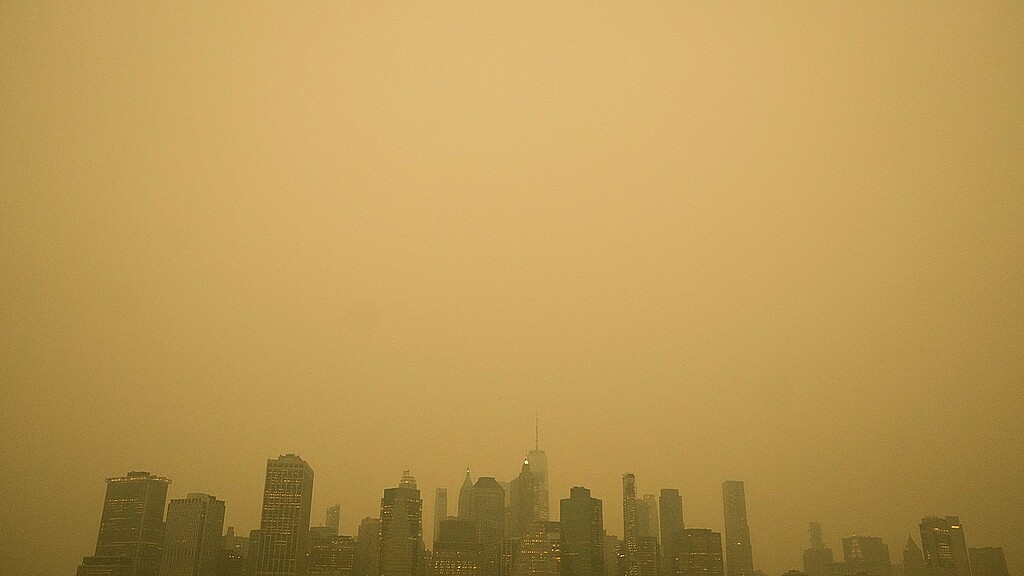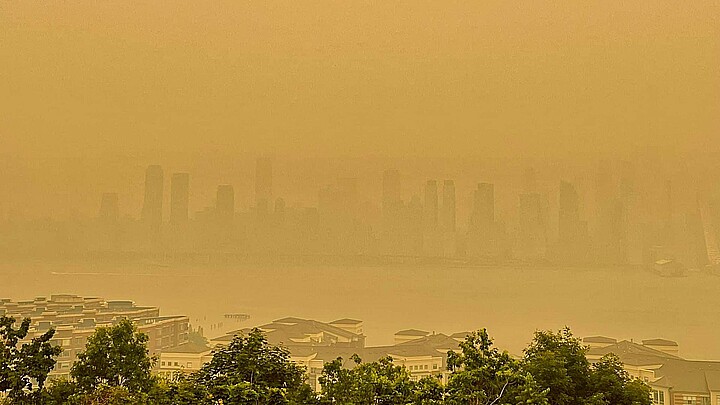Climate
Canadian wildfires place more than 100 million Americans under air quality alerts
Smoke from the Canadian wildfires has covered some of the major U.S. cities, such as New York City, Chicago, Philadelphia, Detroit, and Minneapolis, in a blanket of smoke

June 30, 2023 8:03am
Updated: June 30, 2023 8:03am
More than 100 million Americans were placed under air-quality alerts on Thursday as the smoke from the Canadian wildfires continues to drift across vast portions of the country.
The dangerous conditions brought about by the Canadian wildfires prompted officials to place air-quality alerts extending from Wisconsin and northern Illinois all the way to New York, Washington, and other areas on the East Coast, according to the National Weather Service.
Smoke from the Canadian wildfires has covered some of the major U.S. cities, such as New York City, Chicago, Philadelphia, Detroit, and Minneapolis, in a blanket of smoke, leading to an eerie image of hazy skies and widespread smell of burning wood.
The air quality of these cities and surrounding areas has been deemed “unhealthy” for residents. Chicago, the third-largest city in the nation, ranked among the places with the poorest air quality index rating in the world, according to the pollution tracking website IQAir.com.
Americans who received the alerts are being urged to limit outdoor activities, and wear a mask if they suffer from any respiratory diseases, such as asthma, emphysema, and bronchitis, according to the Centers for Disease Control and Prevention (CDC).
"This week, the average air quality is expected to fluctuate between unhealthy for sensitive groups to unhealthy for everyone," NPR member station Michigan Radio reported.
Canada has been fighting some of the world wildfires it has experienced in its history, with 503 active blazes. About half of the wildfires are considered to be “out of control,” according to the Canadian Interagency Forest Fire Centre. So far, an area bigger than West Virginia—8 million hectares (19.8 million acres)—has already burned.








